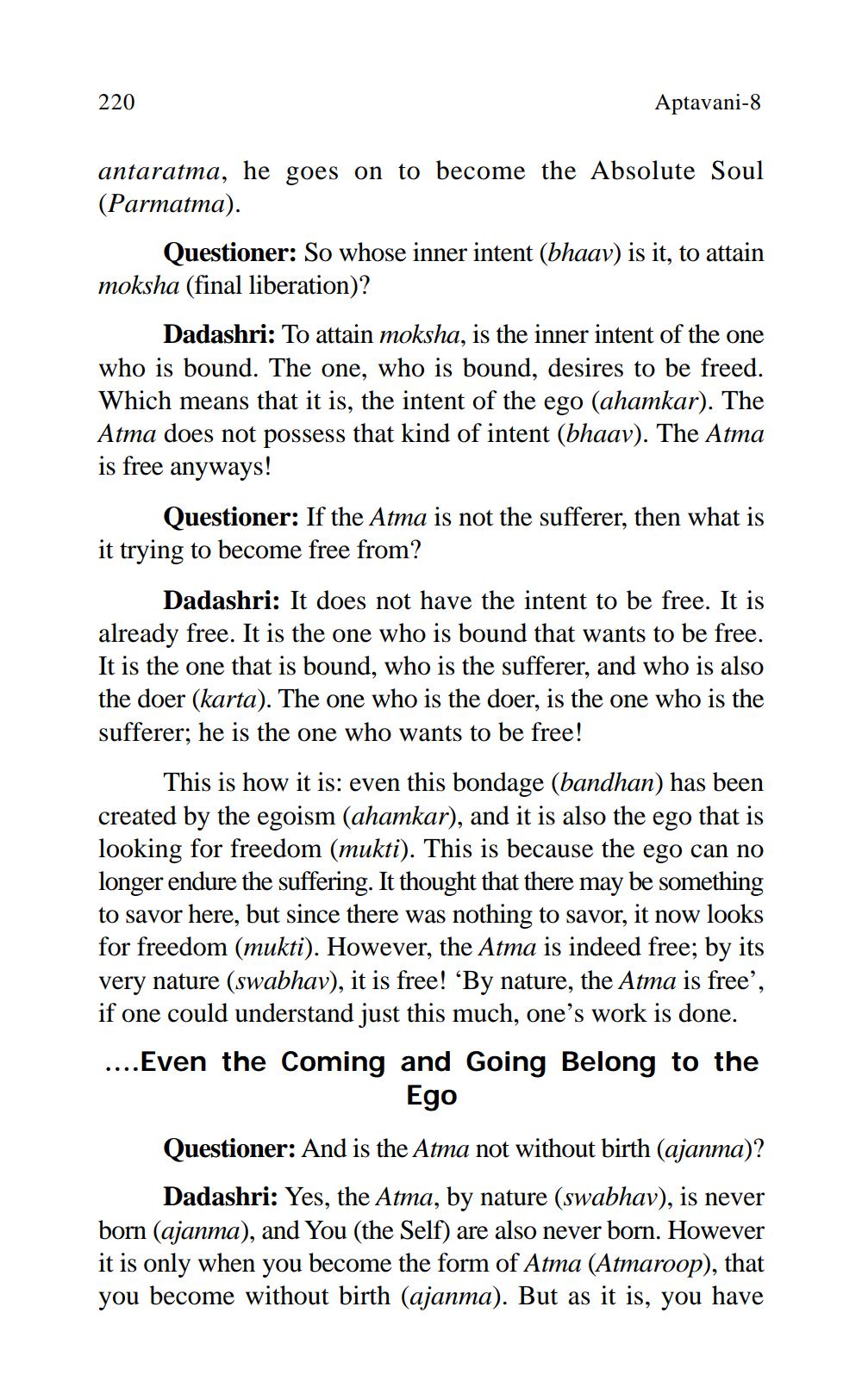________________
220
Aptavani-8
antaratma, he goes on to become the Absolute Soul (Parmatma).
Questioner: So whose inner intent (bhaav) is it, to attain moksha (final liberation)?
Dadashri: To attain moksha, is the inner intent of the one who is bound. The one, who is bound, desires to be freed. Which means that it is, the intent of the ego (ahamkar). The Atma does not possess that kind of intent (bhaav). The Atma is free anyways!
Questioner: If the Atma is not the sufferer, then what is it trying to become free from?
Dadashri: It does not have the intent to be free. It is already free. It is the one who is bound that wants to be free. It is the one that is bound, who is the sufferer, and who is also the doer (karta). The one who is the doer, is the one who is the sufferer; he is the one who wants to be free!
This is how it is: even this bondage (bandhan) has been created by the egoism (ahamkar), and it is also the ego that is looking for freedom (mukti). This is because the ego can no longer endure the suffering. It thought that there may be something to savor here, but since there was nothing to savor, it now looks for freedom (mukti). However, the Atma is indeed free; by its very nature (swabhav), it is free! ‘By nature, the Atma is free', if one could understand just this much, one's work is done. ....Even the Coming and Going Belong to the
Ego
Questioner: And is the Atma not without birth (ajanma)?
Dadashri: Yes, the Atma, by nature (swabhav), is never born (ajanma), and You (the Self) are also never born. However it is only when you become the form of Atma (Atmaroop), that you become without birth (ajanma). But as it is, you have




